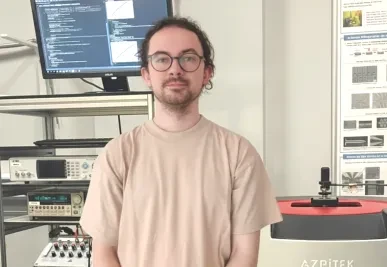PhD thesis defense: Tunable Spin-Charge Interconversion in 2D Materials and Ferromagnets
Eoin Dolan
CIC nanoGUNE
CFM Auditorium
Fèlix Casanova & Luis Hueso

In this thesis, we experimentally investigate, with support from numerical simulations, methods to control spin-charge interconversion in two distinct platforms: graphene and ferromagnetic metals. Control of this process is crucial for developing next-generation spintronic logic and storage devices. Graphene is an excellent candidate for spintronics due to its long spin diffusion length, but it has negligible intrinsic spin-orbit coupling. We demonstrate two methods to induce this property. In graphene proximitized with the two-dimensional material ReS2, we create two distinct interconversion mechanisms, each with a different symmetry and gate-tunability, which offers possibilities for novel logic gates. We then show that a more scalable approach using sputtered heavy metals also induces a gate-tunable spin-charge interconversion. Finite Element Method analysis confirms that this industrially applicable method leaves the long spin diffusion length largely unaffected, which is highly desirable for practical applications. Finally, we investigate the spin Hall effect in ferromagnetic metals. We find that the spin Hall angle varies dramatically depending on the relative orientation of the spin polarization and the material's magnetization. This large anisotropy, however, is almost entirely compensated by an opposing anisotropy in the spin diffusion length, causing their product to remain constant. These results advance the fundamental understanding and practical application of spin transport in these important material systems.
